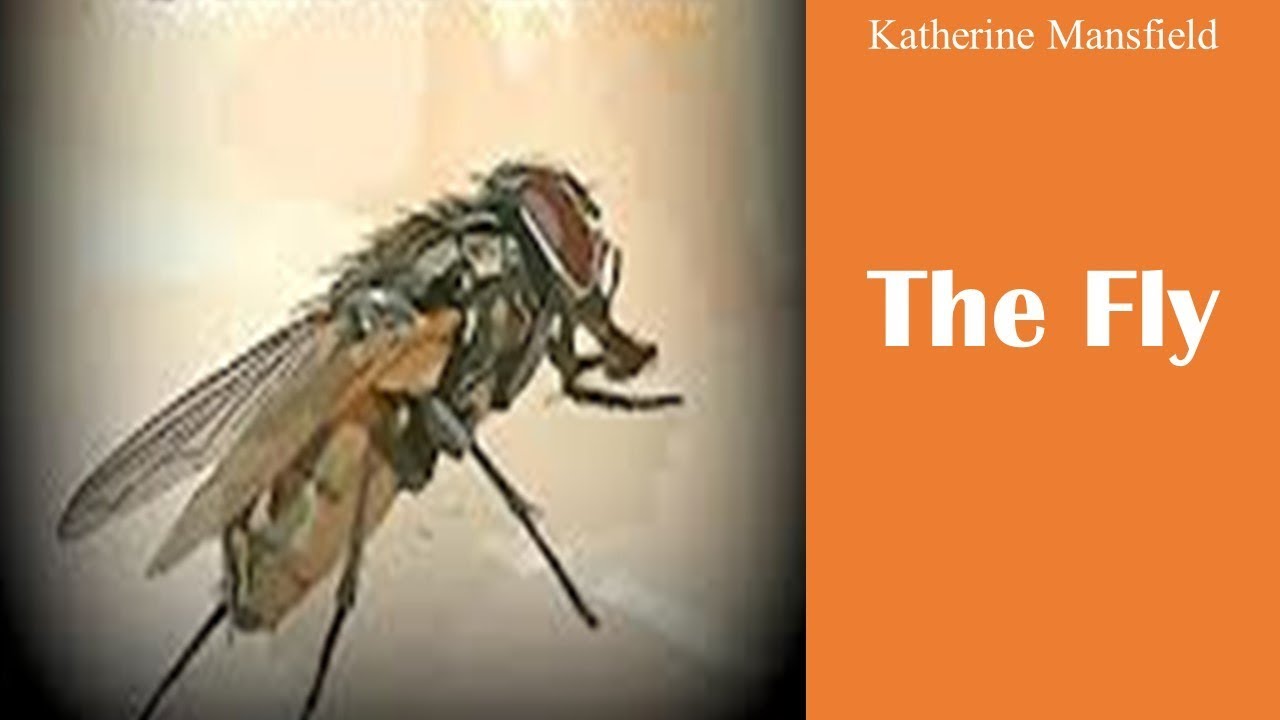
Discuss Katherine Mansfield’s short story The Fly as a psychological story
Although Katherine Mansfield’s The Fly is a short story of some five pages, it is rich in the psychological interest of a fictional narrative. As an introspection into human psychology, it comes closer here to the modern novel of the stream-of-consciousness, which is an extreme form of psychological novels. It may even be taken as a specimen, in the short story form, of the stream-of-consciousness novel.
In the stream-of-consciousness novel, a delicate and subtle study of the human mind is attempted. It lacks conventional action or theme, but is a record of the inner world of a character. There is no beginning, middle, or end, as in a traditional story. A deep probe is here made into the dark corridors of a mind. The intricate flow of the brain, under diverse pressures, is here surveyed. In fact, such a work is concerned with the atmosphere of mind and depicts and illuminates the particular mood of mind, created by some specific experience, realization, or feeling.
The theme of Katherine Mansfield’s story centers around the profound sorrow of a father for the loss of his son. The boss, Mansfield’s hero, lost his only son on the front line some six years back. He was a prosperous and influential businessman who lived in comfort and luxury, trying to forget his shocking bereavement through his responsible business activities.
However, the wealthy father’s attempt was indeed poor. He could not forget his only son and get above the depth of his sorrow and be quiet and strong. Underneath his apparent composure, there was a tormenting pang for the loss of one on whom he had reposed so much. Mr. Woodifield‘s visit and talk about the fine condition of the grave of his son pricked up his dormant sorrow. Six years, no doubt, had elapsed, but his sorrow was not dead. The sad incident seemed to have happened only yesterday to him. So fresh was its reaction on his mind—” Six years ago six years…….How quickly time passed! It might have happened yesterday”.
The storyteller well handles the psychology of the bereaved father. She indicates how old Woodifield’s remark about the boy’s grave quite upset him. In his mind’s eye, the staggered father seemed to see his beloved boy lying quietly in his grave-“It was exactly as though the earth had opened and he had seen the boy lying there with Woodifield’s girls staring down at him.” The stream of consciousness is found to flow strongly in him.
The fly episode, however, particularly reveals the inner current of the hero’s mind. He was in a state of despair and felt his utter helplessness at the hands of a cruel, merciless destiny. That realization came to the surface from his deep interior, as he saw the plight of the fly. He began to test, rather cruelly, the stamina of the little fly, and that was simply the revelation of his mental agitation as well as disconsolation. He impliedly put himself into the position of the fly and began to test the range of the struggle against the cruelty of destiny. The entire fly episode is an artistic expression of the hero’s and the boss’s psychological desperation and their vain effort to establish their stamina of endurance.
The end of the story further emphasizes the boss’s mental state. The little fly expired, and the boss was thoroughly exasperated after witnessing its hard struggle and helpless death. He felt positively frightened and was seized with a ‘grinding feeling of wretchedness’. His mind was turned upside down, for the death of the fly was a sharp pointer to his own bitter pang and helplessness of life. He was made conscious of his own utter wretchedness. He seemed to lose touch with reality. There was a sort of mental vacuity, so finely suggested by the writer– ‘What was it? It was…….’ The tragic note is profoundly moving, although this is not explicitly stated.
A psychological story, like a psychological novel, explores different layers of the mind, concealing various moods, drives, and feelings. As a result, its theme is primarily concerned with the representation of psychology rather than action. In this psychology of the hero–boss, there is deeply latent the two-fold human feeling—the profundity of human sorrow, that is inevitable, and the human helplessness to withstand that inevitability. The boss’ loss of his only son was unavoidable and that he must have to bear, but his sorrow for his dead son was never dead. The handling of the fly by the boss was a glaring indication to him how dreadful, irresistible was the blow of fate, so unsparing, so cruel to human desires and hopes, so destructive of human homes and happiness.





